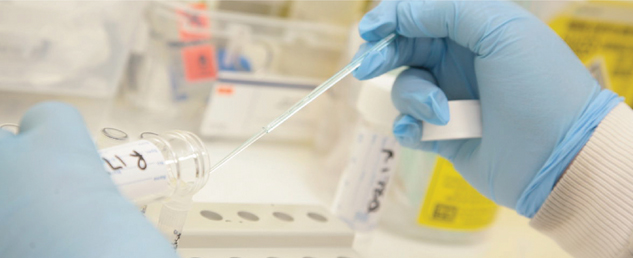Blood Sciences
Blood Sciences combines the traditional pathology disciplines of Biochemistry, Haematology and Transfusion science. The Blood Sciences department is staffed 24 hours a day, 365 days of the year across four different hospital sites. Analysis of patient samples and clinical interpretation of results is carried out in several specialised laboratories by a highly skilled team of registered Biomedical Scientists, Clinical Scientists and Medics, supported by Medical Laboratory Assistants and Administrative staff.
Routine and emergency diagnostic testing is carried out using state of the art analysers linked to a comprehensive laboratory information system. This allows test results to be electronically requested and reported to primary and secondary care, thereby improving the overall quality of the process. Blood Sciences is a major regional and national referral centre for a broad range of specialist diagnostic services.
Our Transfusion laboratories cross-match blood and provide blood products for patients undergoing elective or emergency surgery and medical conditions requiring blood replacements.
For a comprehensive list of the tests that we offer, opening hours, phlebotomy information, reference ranges, telephone extension numbers and information for GPs, please follow the link to our Laboratory Handbook.

